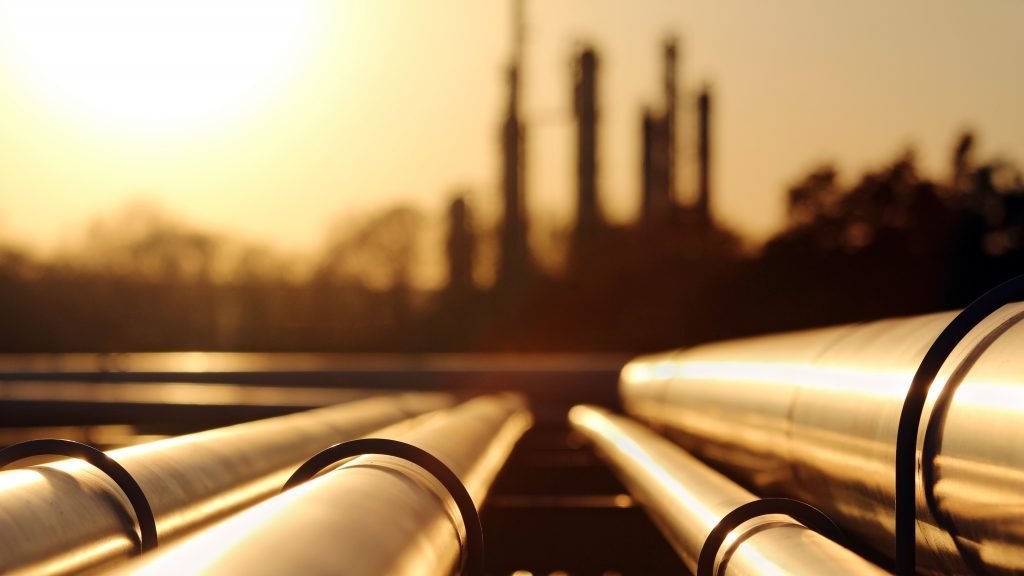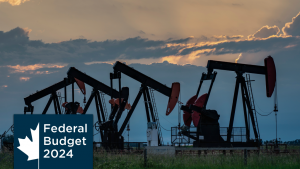After years of waiting and speculation, B.C. is poised to build an LNG industry from scratch in partnership with First Nations and lead the globe with the cleanest LNG product possible to replace dirty coal and oil facilities.
This was the message delivered by BC LNG Alliance CEO Bryan Cox during his keynote at this year’s Canada Gas & LNG Exhibition Conference in Vancouver. LNG Canada’s decision to go ahead with its $40 billion facility in Kitimat, B.C. has breathed new life into a promising industry and the effect on the conference was clear. The day’s program was titled “Reflection and Celebration” which Cox did, laying out the work the industry has been doing to grow ethically and the benefits that it could bring.
“I am extraordinarily excited about the opportunity for B.C. to take on responsibility of a global leadership role to build sustainable prosperity,” he said. “We have an opportunity to strengthen British Columbia and our confederation, an opportunity to bring us all together as Canadians.”
The BC LNG Alliance was formed in 2014 to be a united voice of the province’s leading LNG proponents.
Cox explained the financial benefits from an LNG industry in B.C. which could flow to the province, Canadians and especially to First Nations.
Cox noted that since announcing its FID last year, LNG Canada has already awarded $500 million in contracts to companies in the province, many of them owned and operated locally, and by First Nations. More than 600 people are currently working on the project. Almost half of them are from Kitimat, Terrace or local First Nations communities.
“This is a generational opportunity for real change, real economic reconciliation and partnership with indigenous communities,” said Cox.
Cox cited agreements with bands along the Coastal GasLink Pipeline and Pacific Trail Pipeline and impact benefits agreements the Squamish Nation and Woodfibre LNG have signed as progress.
“We do not claim that these agreements mean unanimous support from First Nations, but for the first time ever, First Nations have the opportunity to participate in in the process of industry, a brand-new industry, in B.C. from the ground up,” Cox said.
Cox explained that in addition to the projects generating high paying jobs, they will also provide tax revenue that can be poured into schools, hospitals, roads and services across the province.
“We will build this industry to be prosperous and this prosperity will be shared with all British Columbians and Canadians,” said Cox. “We can’t let this opportunity pass us by, but if we work together, we won’t let it.”
Cox also stressed that in addition to providing economic opportunities for Canadians, B.C.’s unique approach to LNG has a role to play in reducing harmful emissions around the globe and transitioning nations off more harmful fuel sources.
“BC is set to lead the world in producing the cleanest LNG – that’s a fact,” said Cox. “Liquified natural gas from B.C. will have the least C02 per tonne of any LNG produced in the world.”
The BC LNG Alliance engaged an independent climate change and corporate sustainability firm to determine exactly how B.C.’s projects rank in terms of C02 emissions compared to plants operating around the world. It determined globally that LNG projects produce on average .34 tonnes of C02 for every tonne of LNG produced. The very best performing plants in the world today generate .22 tonnes of C02 while older facilities sit at .50 tonnes.
LNG Canada is projected to generate half the average or less, which would easily make it the cleanest gas-driven plant in the world.
Cox also explained that if Kitimat LNG goes ahead, it would become the first large scale all-electric facility, and several others plan to do the same which would make them the lowest emissions LNG facilities in the world.
“We are providing sustainable global solutions with a clean, Canadian resource,” said Cox.
“Considering the huge increase in global demand for natural gas as countries around the world turn to LNG to meet their climate and human health commitments, the need for B.C. to produce LNG with the lowest overall emissions is clear.”
But Cox explained government support is needed to make the product competitive, as the market is not prepared to pay a premium for low emissions LNG.
Cox said measures like Bill 10 help level the playing field with other industries in B.C. and remove some barriers that could prevent B.C. LNG from being able to compete on the global market. Prior to the bill, the industry faced nine different layers of taxes imposed on it, including the LNG Income Tax, which was unique to Canada. Most other countries impose between two and four layers of tax on LNG.
“LNG projects must be globally competitive, and to do so they cannot have costs that other countries do not,” said Cox. “Therefore, as government drafts the policy and regulations to operationalize Bill 10, it is absolutely essential that these competitiveness measures are available to all LNG proponents.”
In conclusion, Cox urged government, First Nations and proponents to all work together to build a prosperous industry.
“We are creating the energy landscape of the future,” said Cox. “There is a tremendous opportunity for natural gas exported from B.C. as LNG to make a global contribution that drives economic reconciliation for First Nations, British Columbians and Canadians and benefits us all, right here at home.”











Recent Comments
comments for this post are closed